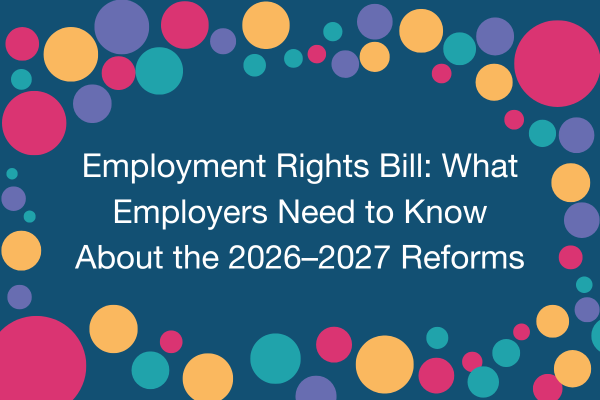News
What to Expect in Employment Law in 2021
2020 did not really work out as planned in employment law or any other terms.
The new Employment Bill which was announced in the Queen's Speech on 19th December, 2019 was not introduced. In addition, the extension of off payroll working rules being extended to the private sector has been postponed.
Changes in Employment Law for 2021
The most significant developments in employment law for 2021 were of course provoked by the COVID19 global pandemic.
Below we have outlined the most key changes and things to expect.
Job Retention Scheme and Furlough
The creation, amendments and extensions of the Coronavirus Job Retention Scheme, or furlough, was sufficient to keep employers and employment lawyers alike occupied for much of the year. At the time of writing, the scheme is scheduled to close at the end of April 2021. However, whilst large parts of the economy remain closed, specifically retail and hospitality, further extensions cannot be ruled out. This may result in a further significant increase in unemployment with employers unable to retain their current workforces without State subsidy.
Extension of IR35
The extension of IR35 provisions to the private sector are now expected to come into force on 6th April. This means that payments to workers supplied to large and medium sized companies by personal services companies will be treated as payment of employment income. Therefore, they must be subject to deductions of PAYE income tax and national insurance contributions before being paid over to the company supplying the worker’s services. This acts to shift responsibility for tax compliance from the personal service company (which can often be controlled by the worker) to the end user client, or the intermediary supplying the services.
Employment Bill
The delayed Employment Bill is also expected at some point during this year. This may include provisions changing the calculation of holiday pay to exclude some overtime payments and/or. it may remove the maximum working week limits. These possibilities have been reported in the press following the UK’s final departure from the European Union. Whether they actually form part of the Bill when it is published remains to be seen.
A consultation exercise started in December 2020 seeking views on measures to reform post termination restrictive covenants. These apply where for a period of time, following termination of employment, an employee is restrained from soliciting or dealing with the former employer’s clients or from competing with the former employer at all. In order for these restrictions, which are on the face of them unenforceable as in restraint of trade, to be enforced the restrictions must be seen as reasonable in scope and duration and be necessary to protect the employer’s legitimate business interests. Their aim cannot merely be to act as a disincentive for employees to move on. Amongst the proposals that BEIS is seeking views on are a requirement for employers to continue to pay employees for the duration of a non competition clause, which could amount to a form of garden leave, to have a statutory maximum duration of a non competition clause or indeed to prohibit the use of such clauses all together. The consultation is due to end at the end of February and it will be interesting to see if any proposals are brought forward in due course.
Other potential areas to watch for developments are further restrictions to prevent the misuse of confidentiality clauses or non disclosure agreements when settling workplace harassment or discrimination claims, the potential extension of pay reporting requirements from gender to include race gap reporting requirements and the extension of redundancy protection for women and new parents. This last measure would prevent redundancy dismissals during pregnancy, maternity leave and for 6 months following a return to work, save for certain specified situations. A private members bill introducing this measure is scheduled for second reading on 26th March 2021.
2021 is likely to remain particularly challenging for employers in all sectors as the economy seeks to recover from COVID19 disruption. Whether there will be further legislative changes introduced at the same time, or whether the Government will continue to withhold any proposed changes in order to reduce the burden on employers will be a key consideration.
Contact Us
For all employment law needs please contact Clare Waller, Partner.
crw@deanwilson.co.uk
01273 249200




